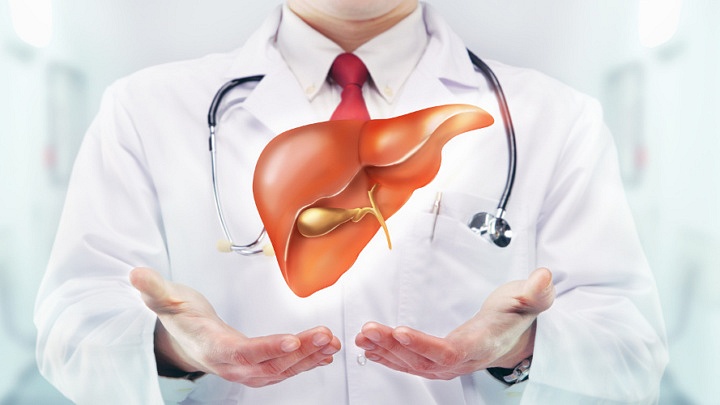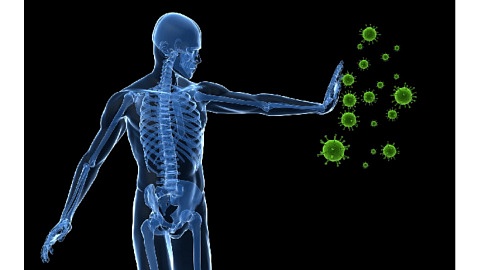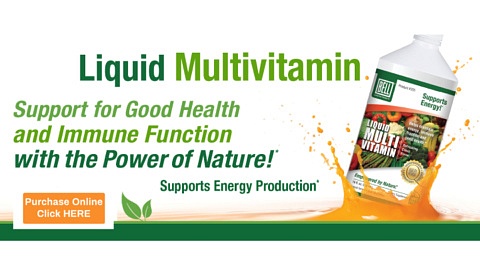A resilient immune system is essential for maintaining good health and preventing many different types of illnesses. The immune system helps protect the human...
Be a Liver Lover! 5 Tips for Amazing Liver Health
Your liver is the central processing department for your body. It is responsible for hundreds of biochemical functions that impact your hormonal health, your nutrition, proper digestion, cholesterol levels, etc. Here are a few highlights of what the liver does for you:
• Packages the nutrients from your meals, and sends it out to the body cells.
• Processes bodily wastes, hormones, and external toxins (including medications) to detoxify and promote their proper elimination.
• Makes hormone-binding proteins that circulate in your blood.
• Makes almost all of the cholesterol in your body.
• Makes your bile, necessary for absorbing fat and vitamins A, D, E, K, beta-carotene, coenzyme Q10. Bile also helps take toxins and excess hormones out of the body.
• Stores carbohydrates for future energy requirements.
• Converts carbohydrate, fats, and proteins.
• Stores nutrients including vitamin A, B12, D, and the mineral iron.
• Makes blood clotting proteins and immune-related proteins.
As a naturopathic doctor, I have noticed and treated more and more people with liver-related disorders, most commonly fatty liver disease. According to the Canadian Liver Foundation, fatty liver disease, a condition that no one had even heard of 15 or 20 years ago, is now the most common form of liver disease in Canada. Characterized by a build up of fat in the liver, fatty liver disease can progress from simple fat accumulation to inflammation and eventually to scarring (cirrhosis). Like many other forms of liver disease, fatty liver disease can also lead to liver cancer. In fact, in Canada, liver cancer has increased 8.5 per cent in the past ten years (more than double the rate of any other cancer except thyroid). To learn more, visit www.liver.ca. As you can see the liver does so much work for you, now its time to show your liver some love. Here are five amazing liver-supportive tips to make your liver’s job easier.
1. Avoid Overeating, and Foods that Contain Trans-Fats and Partially-Hydrogenated Fats.
- Overeating creates more work for your liver. With all the roles the liver has, this extra work can congest and overwhelm the liver. Trans-fats are especially hard for your liver and gallbladder to process. Trans-fats can be found in processed baked and frozen foods, margarines, and fried foods. Some trans-fats are naturally found in meats and dairy. Choose healthier fats such as from nuts and seeds (eg: walnuts and flaxseed) and first-pressed (virgin) olive oil.
2. Do a Liver Cleanse at Least Once a Year.
- This can be as simple as eating lightly, choosing primarily vegetarian and organic options, while avoiding processed and high-fat foods. Jump start your liver cleanse with added supportive herbs such as artichokes, milk thistle, dandelion, beets, lemon/lime, and broccoli-family foods. A good cleanse will also assist the digestive functions and allow you to have one to two bowel movements each day – adding fiber containing foods will really help. Go slow and get personalized advice if you are on medications or have gallbladder or other significant health issues.
3. Avoid Usage of Pesticides, Herbicides, Chemical Laden Cosmetics and Personal Care Products, Solvent-Containing Oil Paints, and Other Chemical Burdens
- They all end up in the liver. If your liver is too occupied with processing these extra chemicals, signs can appear like low energy, you become easily fatigued, headaches, easy bruising, your digestion can slow down, and hormonal symptoms can develop.
4. Drink the Right Fluids.
- Many wakeup with coffee, and end the day with an alcoholic drink, however, these stimulants can stress the liver, especially the toxic effects of alcohol. Make water your beverage of choice. You can make water taste more exciting by adding a dash of orange juice or tomato juice, or a squeeze lime or lemon. Water will help flush your system, including your liver, reducing its congestion.
5. Exercise and Deep-Breathing Exercises.
- When you breathe deep as during exercise, or during relaxation exercises, your liver gets a massage from the diaphragm muscle (which connects the lungs and the liver), and we all love our massages, including the liver. It doesn’t have to be intense exercise, even walking everyday is helpful for your liver.
Related Posts
Bell Lifestyle Products announced today the
re-release of their popular Liquid Multivitamin.
“As a leader in liquid multivitamins, we
wanted to take the...
Bell Lifestyle Products announced today the release of their
new Immune Support product for the Canadian market. This product joins a
comprehensive family of...
Bell Lifestyle Products announced today the re-release of their popular Liquid Multivitamin. “As a leader in liquid multivitamins, we wanted to take the...
Bell Lifestyle Products announced today the release of their new Immune Support product for the Canadian market. This product joins a comprehensive family of...
Categories
- Allergy Relief
- Bell Lifestyle News
- Brain and Vision Health
- Depression
- Digestive Health
- Eating Healthy
- Energy Boosts
- Fitness
- Foods for Energy
- Heart and Lung Health
- Herbs
- Immune System Support
- Lifestyle
- Men's Health
- Mental
- Motivation
- Natural Remedies
- Nutrition
- Pain Relief
- Physical
- Recipes
- Relationships
- Sexual Health
- Skin and Hair Health
- Sleep Health
- Social
- Stress Relief
- Uncategorised
- Videos
- Weight Management
- Women's Health
- Your Wellness Now
Follow us on Twitter
#90 Bladder One for Women™ is a convenient one-a-day capsule for urinary tract health, featuring herbal extracts in… twitter.com/i/web/status/1…
May 2023Urinary tract infections - UTI: To treat or prevent? That is the question. Find out more about causes and treatme… twitter.com/i/web/status/1…
May 2023"How you feel is very important to how you look. Healthy equals beautiful." - Victoria Principal #womenshealth https://t.co/OPShoEbOXb
May 2023
© Copyright 2025. All rights reserved.




